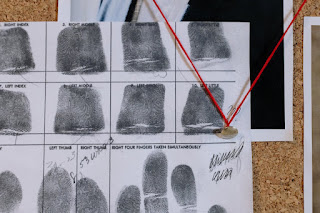For security reasons, the U.S. Citizenship and Immigration Services (USCIS) generally are required to capture an applicant's biometric information such as fingerprints and photographs before they approve any immigration-related applications. Applicants are required to attend a biometrics appointment at a designated Application Support Center (ASC) near their place of residence. However, there are instances in which the applicant is not able to attend these appointments due to a disability or other physical conditions. Recently, USCIS has issued guidance regarding and remote biometrics collection.
Applicants with Disability or Health Condition
Under this policy, USCIS may provide domestic mobile biometric services for applicants who have a disability or health reason that prevents them from physically appearing in person for their appointment. USCIS may also exercise its discretion to provide domestic mobile biometric services in other limited circumstances. For example, applicants who are located in remote locations may also request for remote biometrics services.
Mobile biometrics services are generally performed by contractors to collect biometrics information from applicants at their locations. If USCIS is not able to provide mobile biometrics collection services due to a person’s remote location, USCIS may also choose to coordinate with local law enforcement agencies or other DHS components to collect biometrics on behalf of USCIS.
Applicants in Custody
USCIS does not collect biometrics from persons in custody at correctional institutions, regardless of their immigration status. USCIS also does not approve requests to reschedule a biometrics appointment for reason of detention or incarceration. In the case of an incarcerated person, USCIS has an intradepartmental agreement with U.S. Immigration and Customs Enforcement (ICE) to complete background and security checks for individuals who are incarcerated at DHS facilities and applying for benefits with USCIS.
Fingerprint Waivers
Some applicants are not able to provide fingerprints at all because of a medical condition, such as a disability, birth defects, physical deformities, skin conditions, and psychiatric conditions. In these situations, USCIS may grant a fingerprint waiver if the following requirements are met:
1) The applicant or a related party has appeared in person for the biometrics collection; 2) An officer or authorized technician attempted to fingerprint the person (or determined that such an attempt was impossible); and 3) The officer determines that the person is unable to be fingerprinted at all or is unable to provide a single legible fingerprint.
A fingerprint waiver must be requested and approved for each individual application or petition. If a waiver is granted, the applicant must still obtain local police clearance letters or other application-specific documentation covering the relevant periods to the immigration interview. If an applicant is granted a fingerprint waiver or has two unclassifiable fingerprint results, USCIS will take a sworn statement from the person covering the relevant periods for the application.

No comments:
Post a Comment